Evaluation of nonverbal intelligence in a pediatric patient using hearing aids
DOI:
https://doi.org/10.20453/rhr.v2023i1.5038Keywords:
bilateral sensorineural hearing loss, hearing aids, nonverbal intelligenceAbstract
The objective of this research is to determine the level of nonverbal intelligence of a pediatric patient diagnosed with severe bilateral sensorineural hearing loss who has undergone two evaluations. In the first evaluation, the patient was not a hearing aid user; while in the second evaluation she was a hearing aid user, with one year of auditory-verbal rehabilitation and occupational therapy. The present study explored general intellectual aptitude with reduced language intervention to evaluate special circumstances, such as children with language acquisition problems, which is the case of the pediatric patient. This intellectual aptitude is related to processing speed, working memory, abstract and conceptual reasoning, and spatial reasoning. The purpose of this study is to demonstrate the importance of rehabilitation to achieve a better quality of life for the patient.
Downloads
References
Organización Mundial de la Salud. La sordera y los defectos de la audición [Internet]. OMS; 2019. Disponible en: https://web.archive.org/web/20191021165323/https://www.who.int/topics/deafness/es/
Torres Monreal S, Rodríguez Santos JM, Santana Hernández R, González Cuenca AM. Deficiencia auditiva: aspectos psicoevolutivos y educativos. Málaga: Aljibe; 1995.
Torres S, Urquiza R, Santana R. Deficiencia auditiva: guía para profesionales y padres. Málaga: Aljibe; 1999.
Reamer JC. Mental and Educational Measurements of the Deaf. Princeton: Psycholgical Review Company; 1921.
Best B, Roberts O. Early cognitive development in hearing impaired children. Am Ann Deaf [Internet]. 1976; 121(6): 560-564. Disponible en: https://pubmed.ncbi.nlm.nih.gov/998462/
Marchesi A. El habla interna de los sordos profundos: una revisión del libro de R. Conrad, The deaf schoolchild. Rev Psic Gral Aplic. 1981; 36(5): 955-962.
Castiblanco Garzón ZJ, Parrado Rincón JI, Salamanca Becerra HC, Enamorado Ladino HA. Descripción del perfil de inteligencia en niños sordos del colegio departamental la Esperanza. Perspectivas [Internet]. 2018; 3(10): 170-180. Disponible en: https://revistas.uniminuto.edu/index.php/Pers/article/view/1782
Piaget J. Language and thought from the cognitive point of view. En: Adams P, editor. Language in thinking. Londres: Penguin Books; 1972.
Furth HG. Deafness and Learning: A Psychosocial Approach. California: Wadswhort; 1973.
Vygotsky LS. Thought and Language. Cambridge: MIT Press; 1962.
Furth HG. Pensamiento sin lenguaje: implicaciones psicológicas de la sordera. Madrid: Marova; 1981.
Cassiano Barbosa AC, Lukasova K, Pontrelli Mecca T, Coutinhu Macedo E. Intelligence assessment of deaf students with TONI 3. Psico-USF2, Bragança Paulista [Internet]. 2013; 18(2): 183-192. Disponible en: https://www.redalyc.org/articulo.oa?id=401036095002
Huber M, Kipman U. Cognitive skills and academic achievement of deaf children with cochlear implant. Otolaryngol Head Neck Surg [Internet]. 2012; 147(4): 763-772. Disponible en: https://aao-hnsfjournals.onlinelibrary.wiley.com/doi/10.1177/0194599812448352
Downloads
Published
How to Cite
Issue
Section
License
All articles published in the Revista Herediana de Rehabilitación are under a Creative Commons Reconocimiento 4.0 International license.
The authors retain the copyright and grant the journal the right of first publication, with the work registered with the Creative Commons License, which allows third parties to use what is published whenever they mention the authorship of the work, and to the first publication in this magazine.
Authors can make other independent and additional contractual agreements for the non-exclusive distribution of the version published in this journal, provided they clearly indicate that the work was published in this journal.
The authors can file in the repository of their institution:
The research work or thesis of degree from which the published article derives.
The pre-print version: the version prior to peer review.
The Post-print version: final version after peer review.
The definitive version or final version created by the publisher for publication.
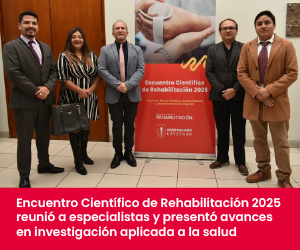
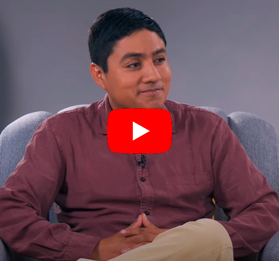





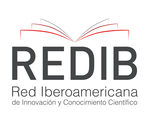

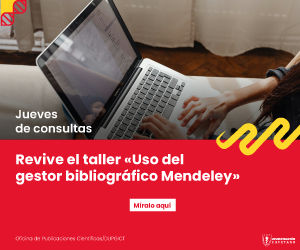
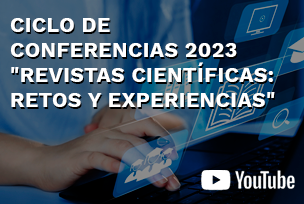
 Esta obra está bajo una
Esta obra está bajo una 